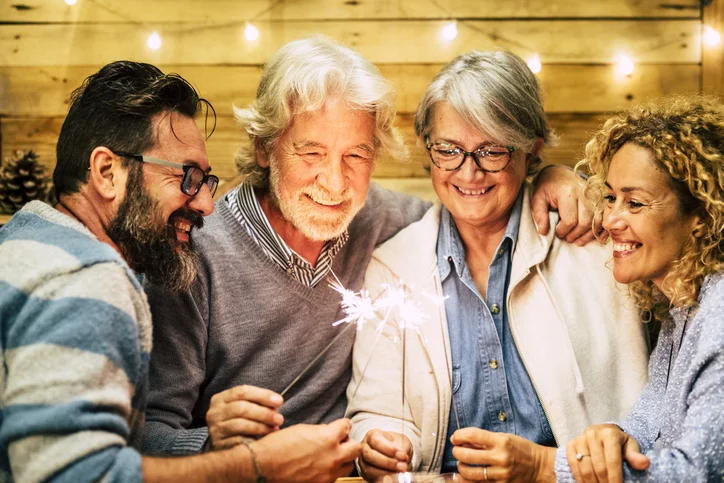It’s easy to understand the appeal of the New Year. Many people see it as an opportunity to wipe the slate clean and begin the next chapter of their life. It’s become so popular that 41% of Americans list New Year’s Eve as their favorite holiday. But have you ever wondered how we first came to celebrate New Year’s Eve? Here is a look back at the origins of the New Year and the many holiday traditions that have been popularized over the years.
Why We Celebrate the New Year
Celebrating the New Year can be traced as far back as 4,000 years ago. In the time of ancient Babylon, the day was celebrated on the “vernal equinox” in late March. That was before the introduction of the Julian calendar by Roman Emperor Julius Caesar in 46 B.C.
Caesar’s new calendar was established in an effort to sync up with the passage of the sun. Thus, New Year’s Day shifted from late spring to January 1. The calendar most of us use today, otherwise known as the “Gregorian calendar,” follows the tradition of the Julian calendar.
There are also New Year’s traditions from the Babylonian period that we still practice today.
The Most Popular New Year’s Traditions
Everyone celebrates the New Year in their own way. Some people spend the evening with families and friends, taking in a fireworks display or celebrating out on the town. Not to mention the people who call it a night and head to bed long before the clock strikes midnight.
Here are the most popular New Year’s traditions, and where they came from:
- Toasting with champagne. The origins of the champagne toast can be traced back to the 19th century, when bottled drinks started to become more affordable. Champagne was still considered a luxury, which led the champagne industry to promote a glass of bubbly as the beverage of choice for special occasions. Their efforts bore fruit, as an estimated 360 million glasses of champagne are drunk on New Year’s Eve.
- Fireworks. Fireworks originated in China, where it is believed that the sound of the fireworks wards off both evil spirits and misfortune.
- The “ball drop.” Everyone has watched the iconic “ball drop” in Times Square on New Year’s Eve at some point in their life. The invention of the ball drop was born out of a New York City ban on fireworks in the 1900’s. Unable to mark the New Year with fireworks, the event organizers came up with the idea of having a 700-lb. ball of iron and wood slowly descending down a pole before completing its drop at midnight.
- The midnight kiss. Exchanging a kiss to ring in the New Year is a tradition that first started in England Germany, where kissing at the stroke of midnight was believed to bring you luck in the coming year.
- New Year’s resolutions. The first traces of New Year’s resolutions may have originated with the Babylonians, who would renew oaths to their king at the start of the new year. Beyond that, early Christians made New Year’s resolutions, resolving to re-commit themselves to the tenets of their faith. Making resolutions has since become a mostly secular tradition, and a perennial subject of thought and discussion.
How to Make Healthy New Year’s Traditions
You are free to spend your New Year’s Eve however you’d like, but don’t pass up the opportunity to set the tone for the coming year by making healthier choices as you turn the page on a fresh calendar. Try incorporating these healthier traditions (or resolving to!) in your own New Year’s celebration this year:
- Make healthy food choices. When foraging through the spread at your New Year’s Eve party, focus on eating more whole foods, such as fruits and vegetables. Diets rich in foods such as whole grains, legumes, fish, healthy fats and of course fruits and vegetables have been shown to improve cardiovascular health.
- Get more sleep. As you get older, the need for a good night’s sleep never changes. In fact, older adults need just as much sleep as younger adults. If you find yourself fighting to stay awake, take comfort knowing that nearly 30% of those celebrating the New Year are in bed before midnight. There is no shame in calling it an early night!
- Drink in moderation. Try not to overindulge on champagne on New Year’s Eve. Even just making a point to choose a small glass of bubbly can help limit the amount you drink and lead to much more restful sleep that night.
- Get active. Consider spending your New Year’s Eve doing something active, such as dancing, ice skating, or even just taking a stroll with someone you love.
- Plan ahead for the New Year. Millions of people make resolutions for the New Year, but so few of us actually keep them. Get into the habit of creating a plan that will hold you accountable and help you achieve your resolutions.


